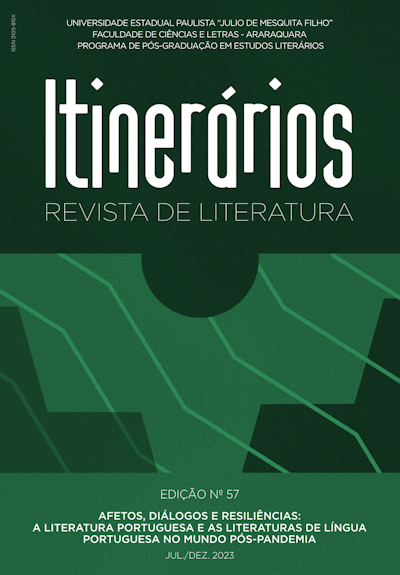Histórias de amor, o livro censurado de José Cardoso Pires
DOI:
https://doi.org/10.58943/irl.v1i57.18660Palabras clave:
Literatura portuguesa, José Cardoso Pires, Narrativa breve, Censura, NeorrealismoResumen
A alienação e a violência que tantas vezes se manifestam na narrativa de José Cardoso Pires surgem associadas a um ambiente de asfixia, motivado por uma estrutura social que ameaça constantemente a liberdade, a dignidade e, em muitos casos, a vida de seres humanos. É certo que os portugueses são seres carregados de História. Sempre houve quem vivesse à sombra do Poder, entre inquisições várias, cujos olhos – mil – sempre contaram com burocratas de plantão, pondo em risco a liberdade e o direito dos homens, em estado de exceção, esse “ponto de desequilíbrio entre direito público e fato privado”, segundo Giorgio Agambem (Estado de exceção, 2004, p. 11), tendendo “cada vez mais a se apresentar como paradigma de governo dominante na política contemporânea.” Dois livros de narrativas breves vêm a público em plena vigência do neorrealismo, no momento em que o Estado Novo salazarista exerce o seu poder de repressão e de Censura – Os Caminheiros (1949) e Histórias de Amor (1952) – este tirado de circulação pela censura em 26 de agosto do mesmo ano de sua publicação. Com a publicação do volume Jogos de Azar, em 1963, vêm a público contos dos dois livros. Em 2008, dez anos depois da morte de seu autor, sairia a segunda edição das Histórias de amor, em que se incluem os trechos censurados. É com este livro que pretendo homenagear o autor d’ O Delfim, vinte e cinco anos depois de sua morte.
Descargas
Publicado
Número
Sección
Licencia
Os manuscritos aceitos e publicados são de propriedade da revista Itinerários. É vedada a submissão integral ou parcial do manuscrito a qualquer outro periódico. A responsabilidade do conteúdo dos artigos é exclusiva dos autores. É vedada a tradução para outro idioma sem a autorização escrita do Editor ouvida a Comissão Editorial.

